Year 9 Area and Perimeter Worksheets
Area and Circumference
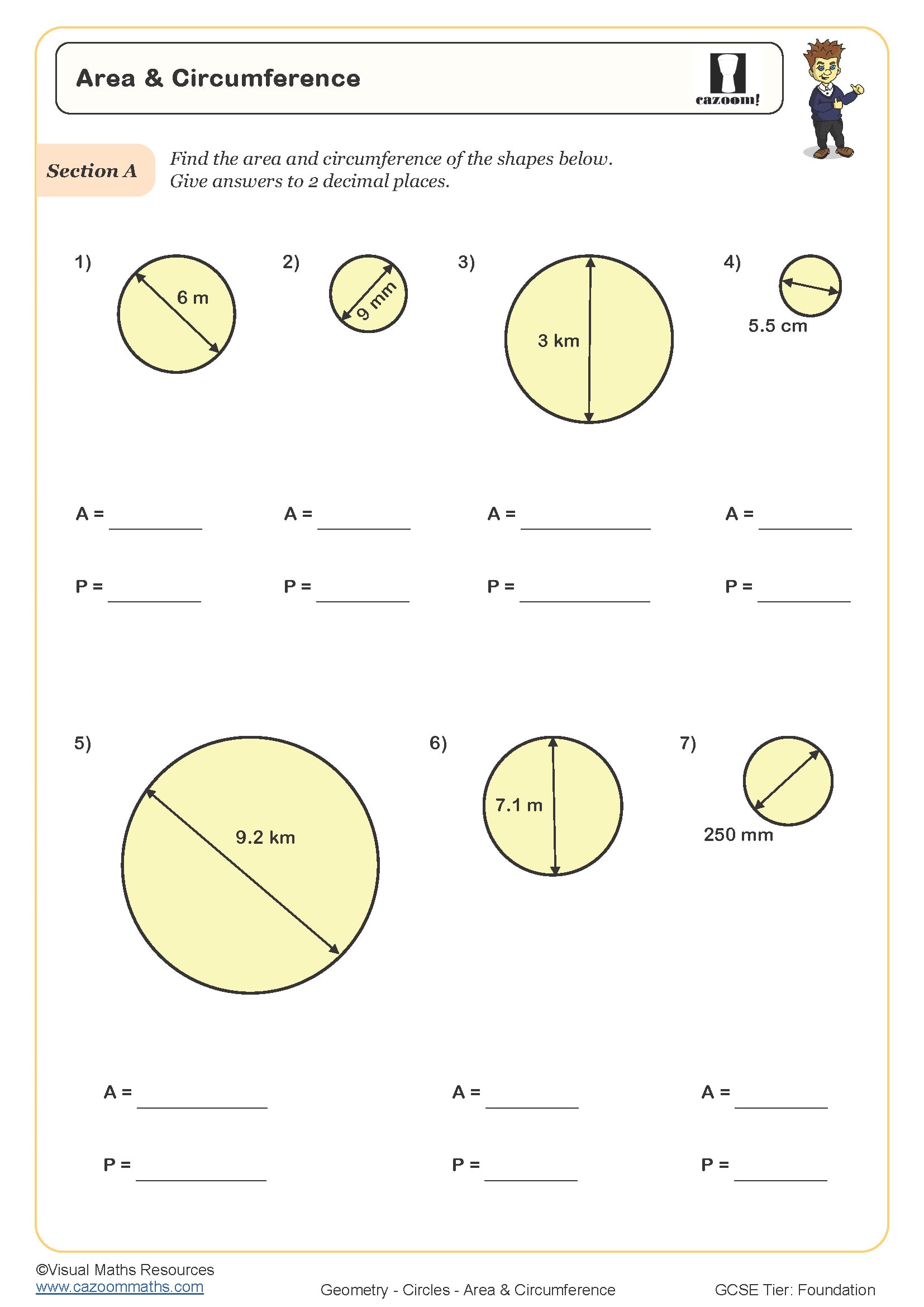
Area of 2D shapes
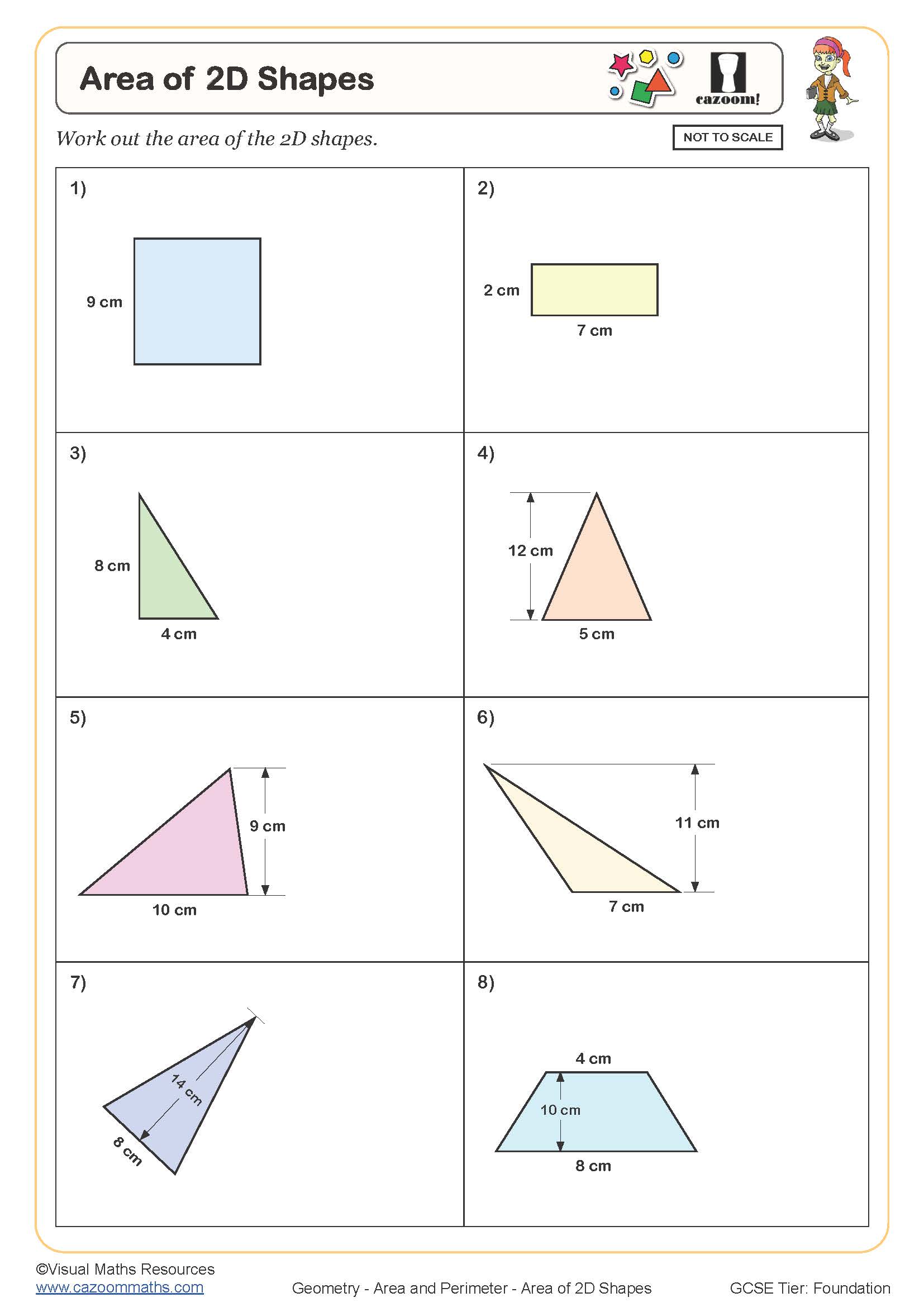
Area of a Kite
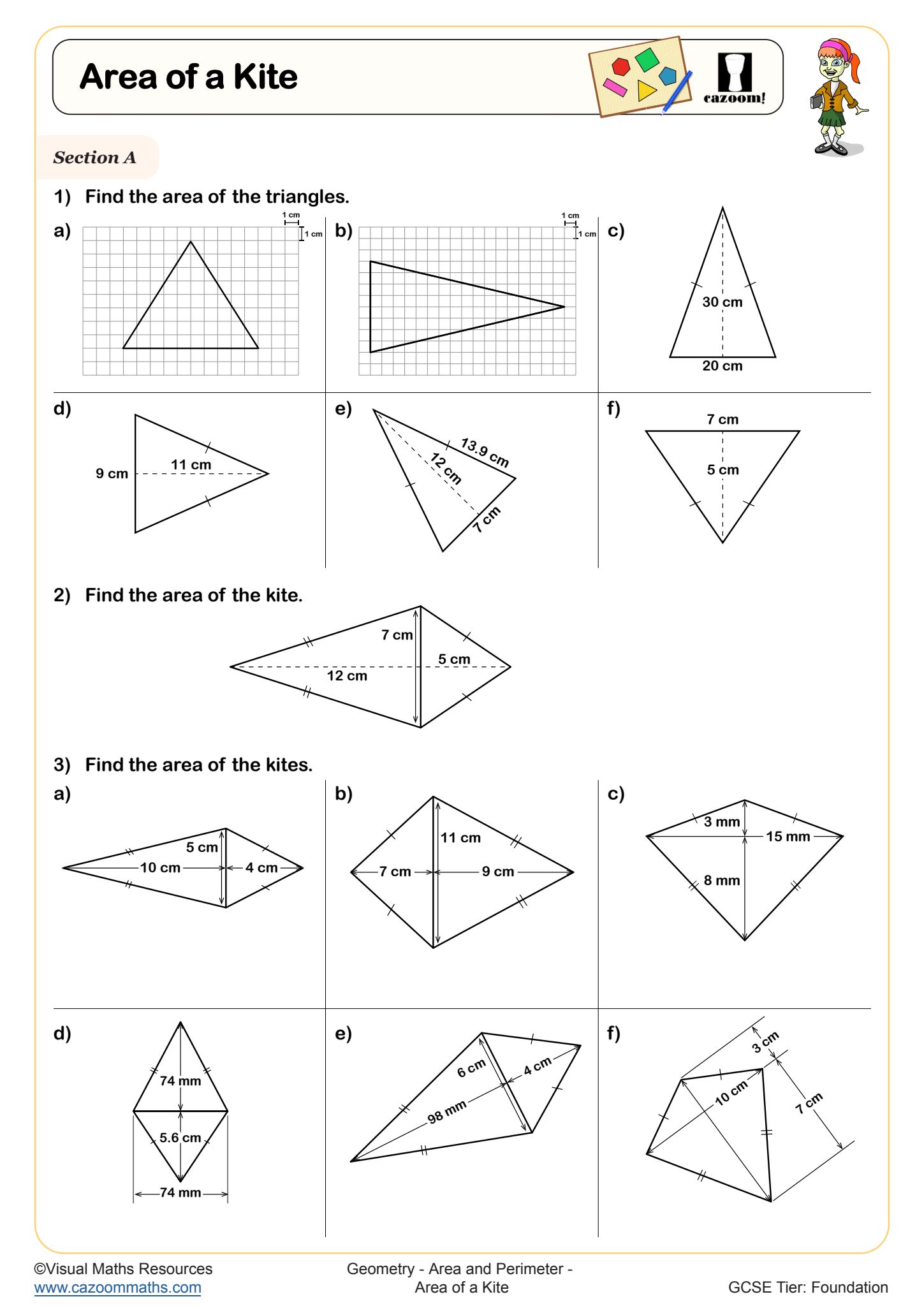
Area of Circles
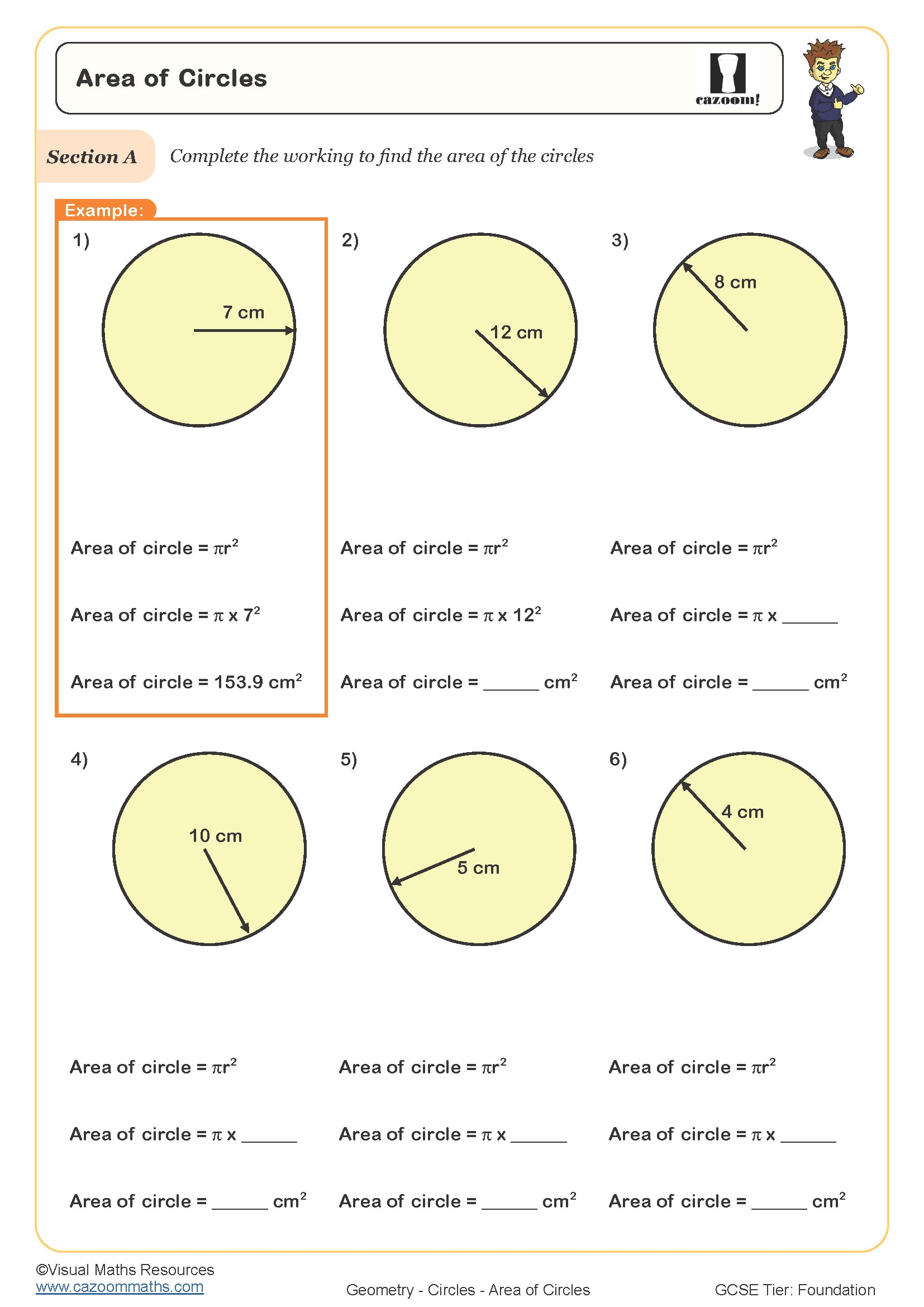
Area of Quadrilaterals (B)
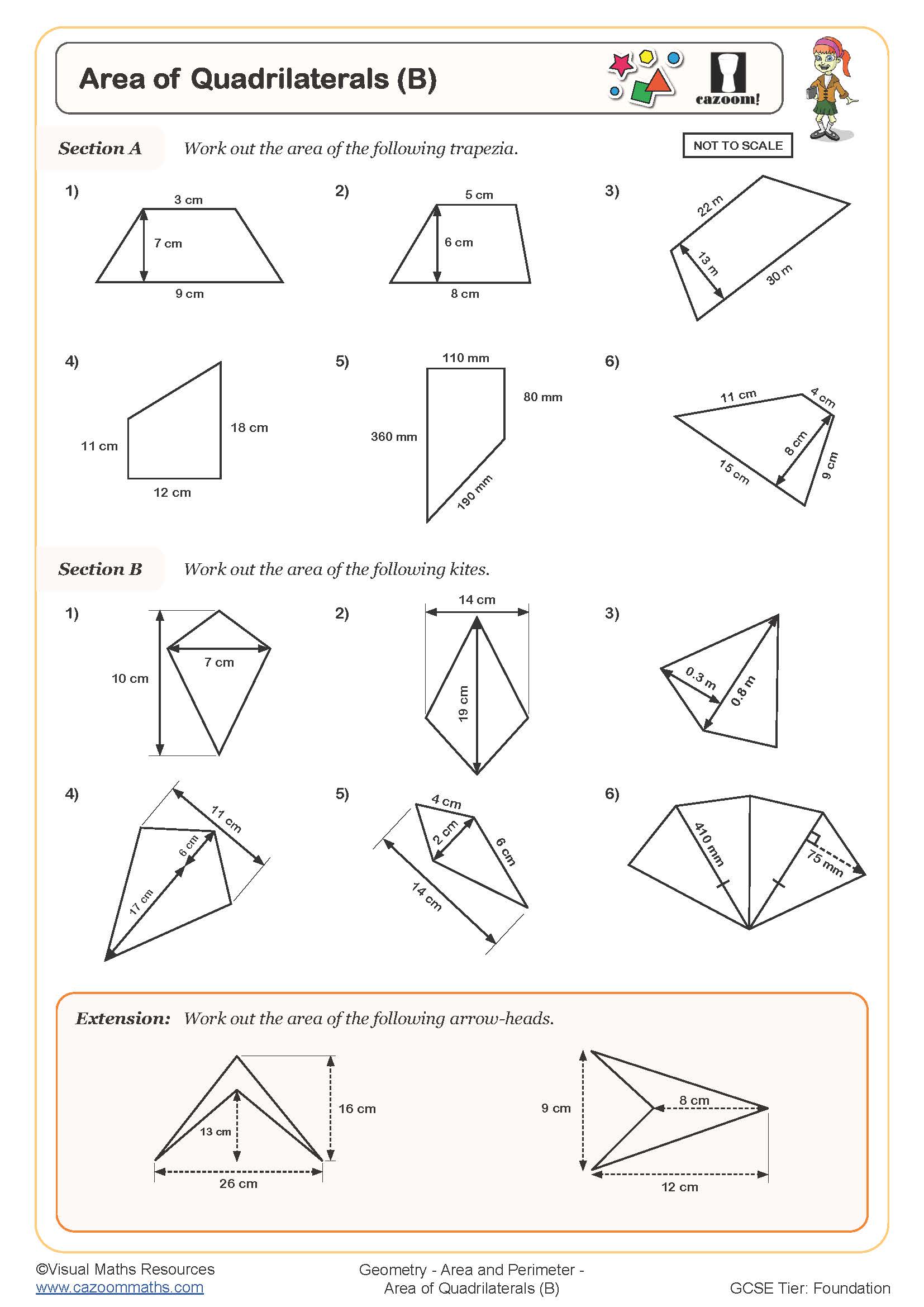
Area of Regular Hexagons
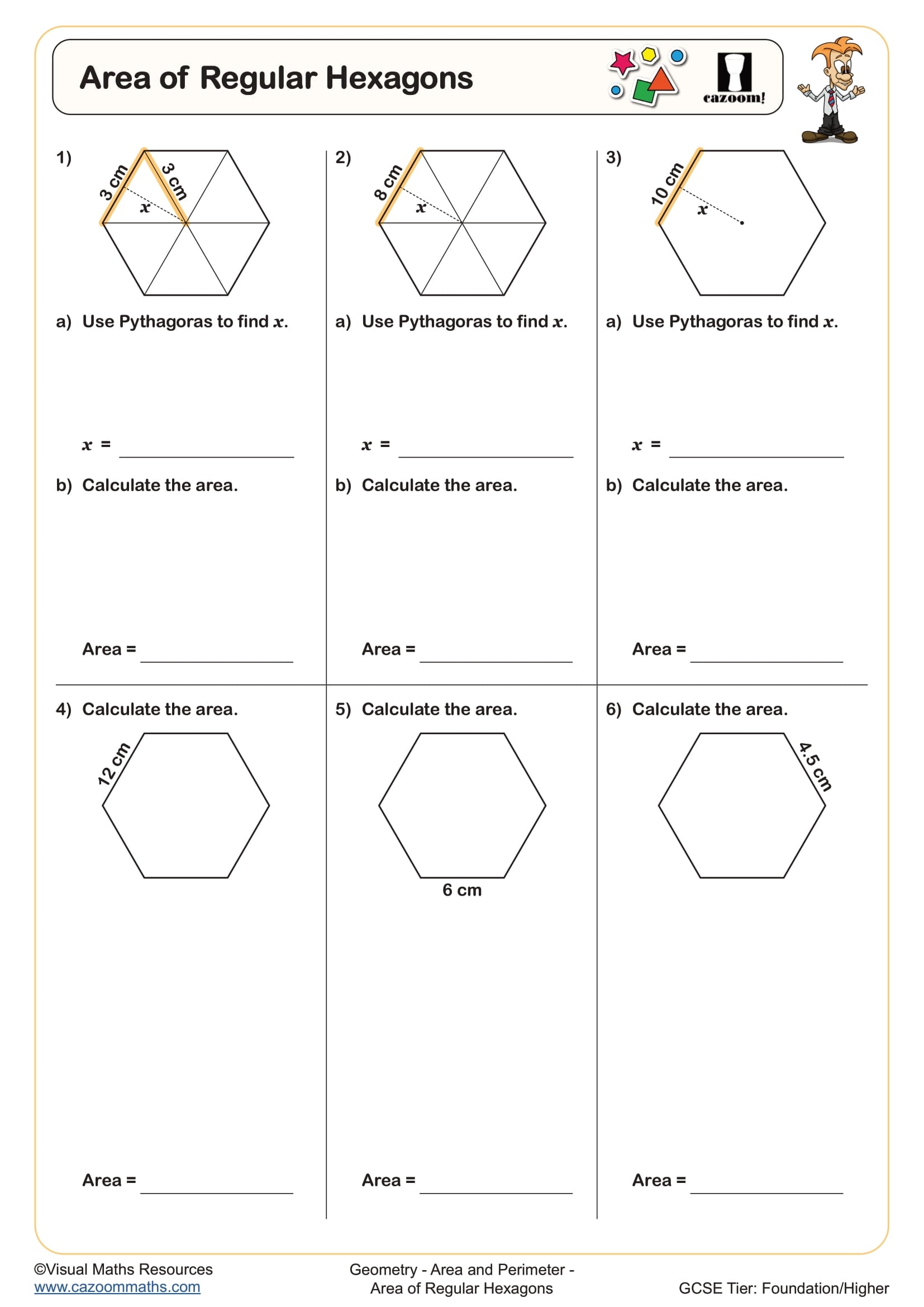
Area of Trapezia (A)
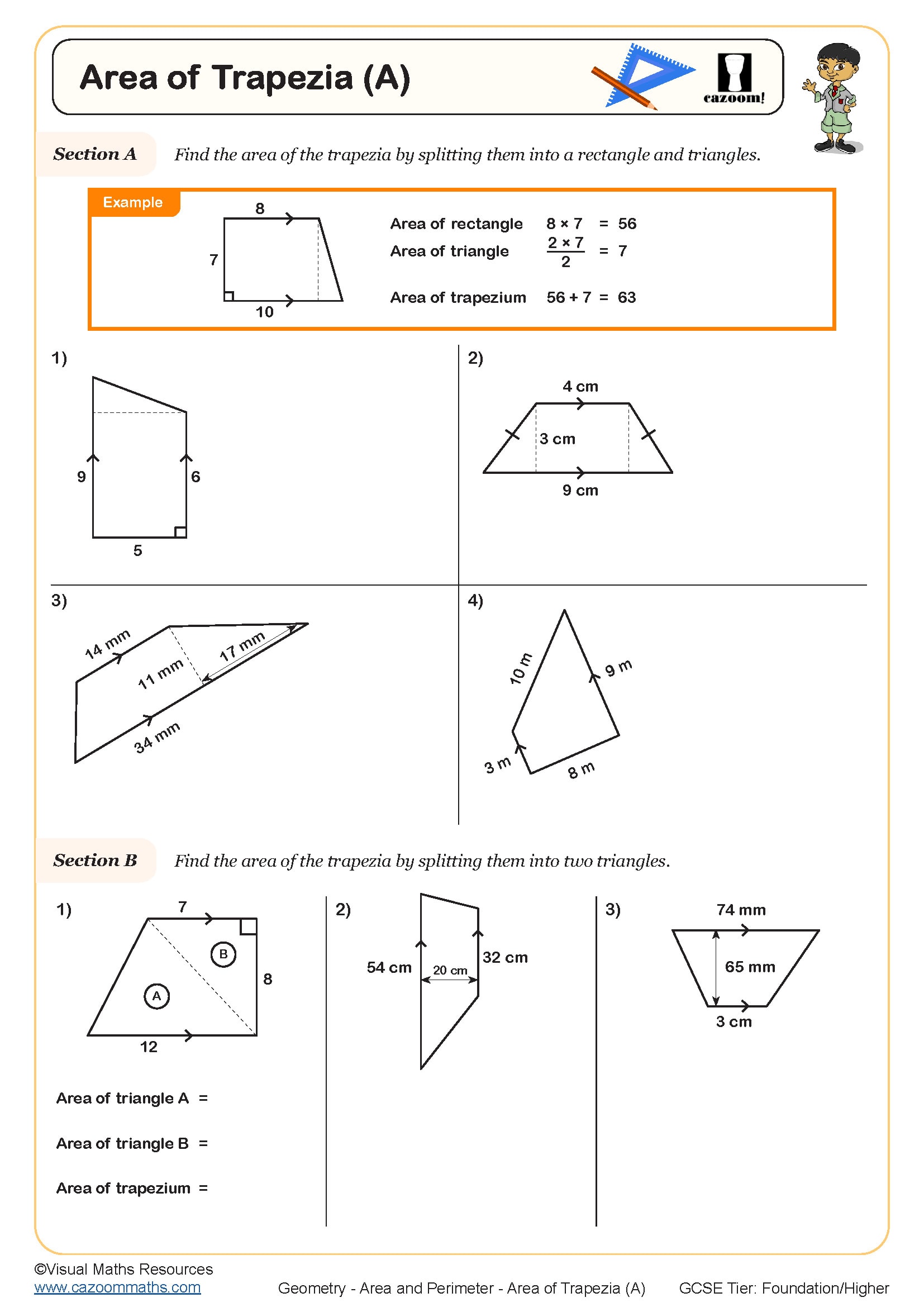
Areas of Kites

Circle Area Problems
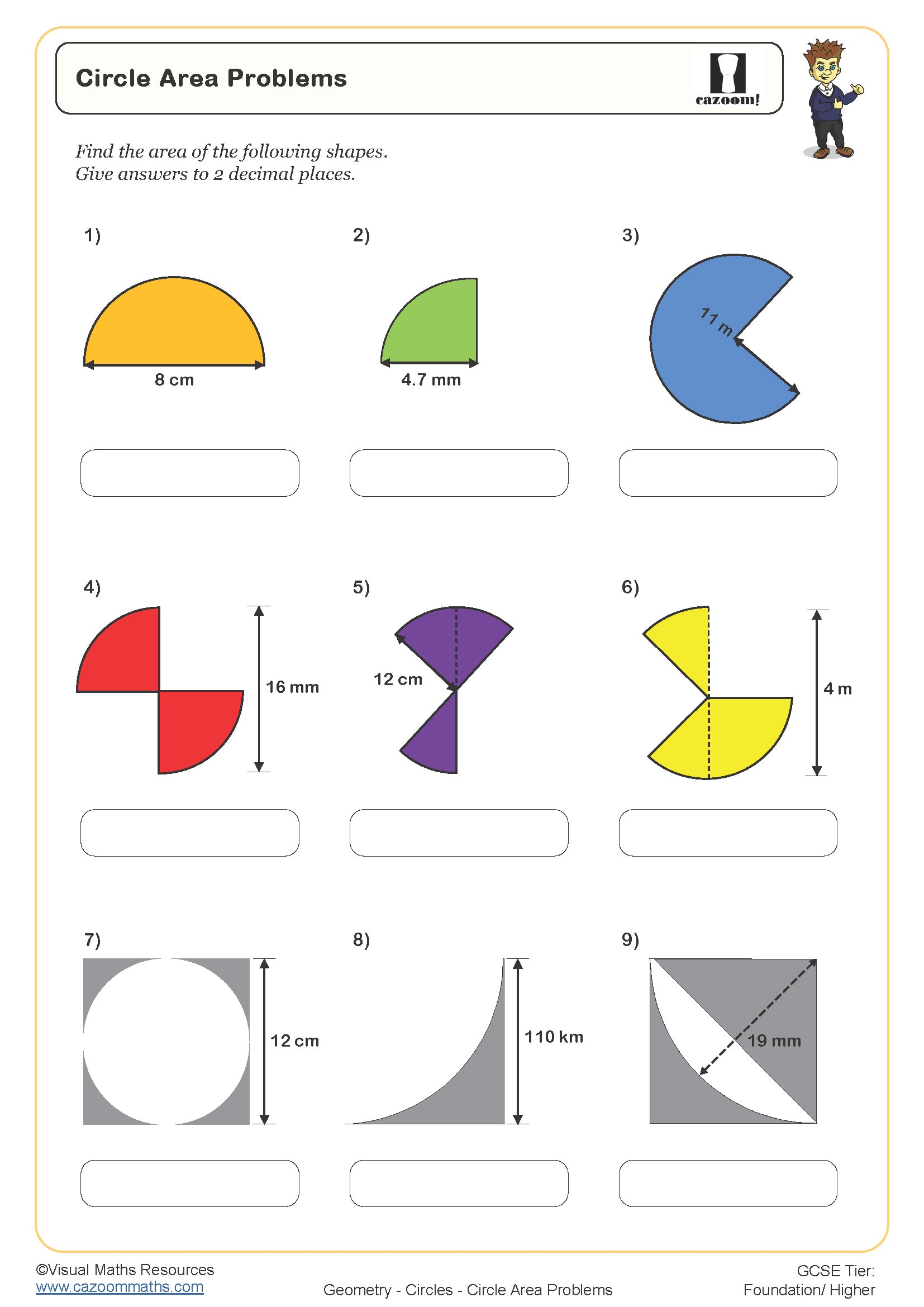
Circumference
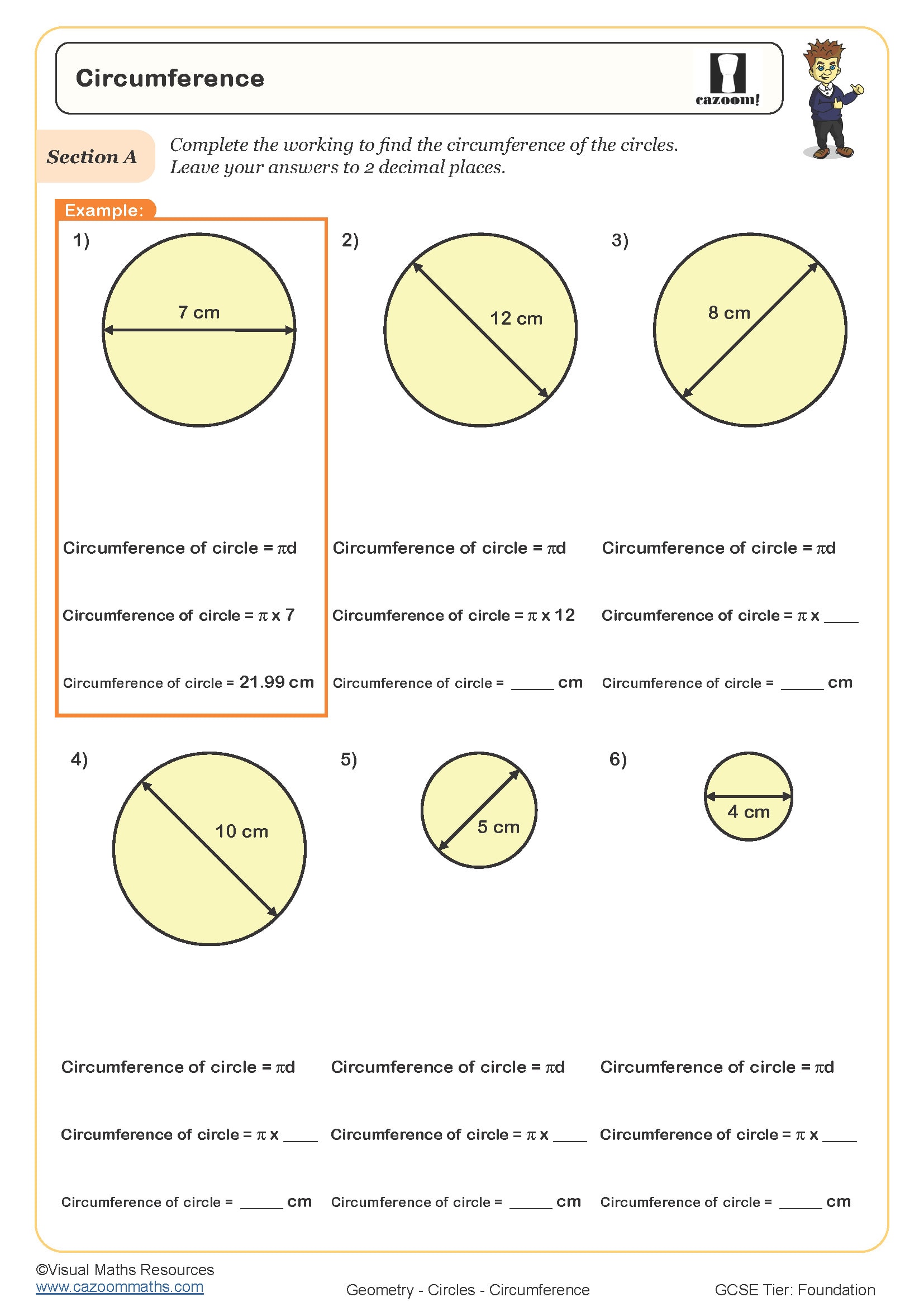
Compound Shapes (B)
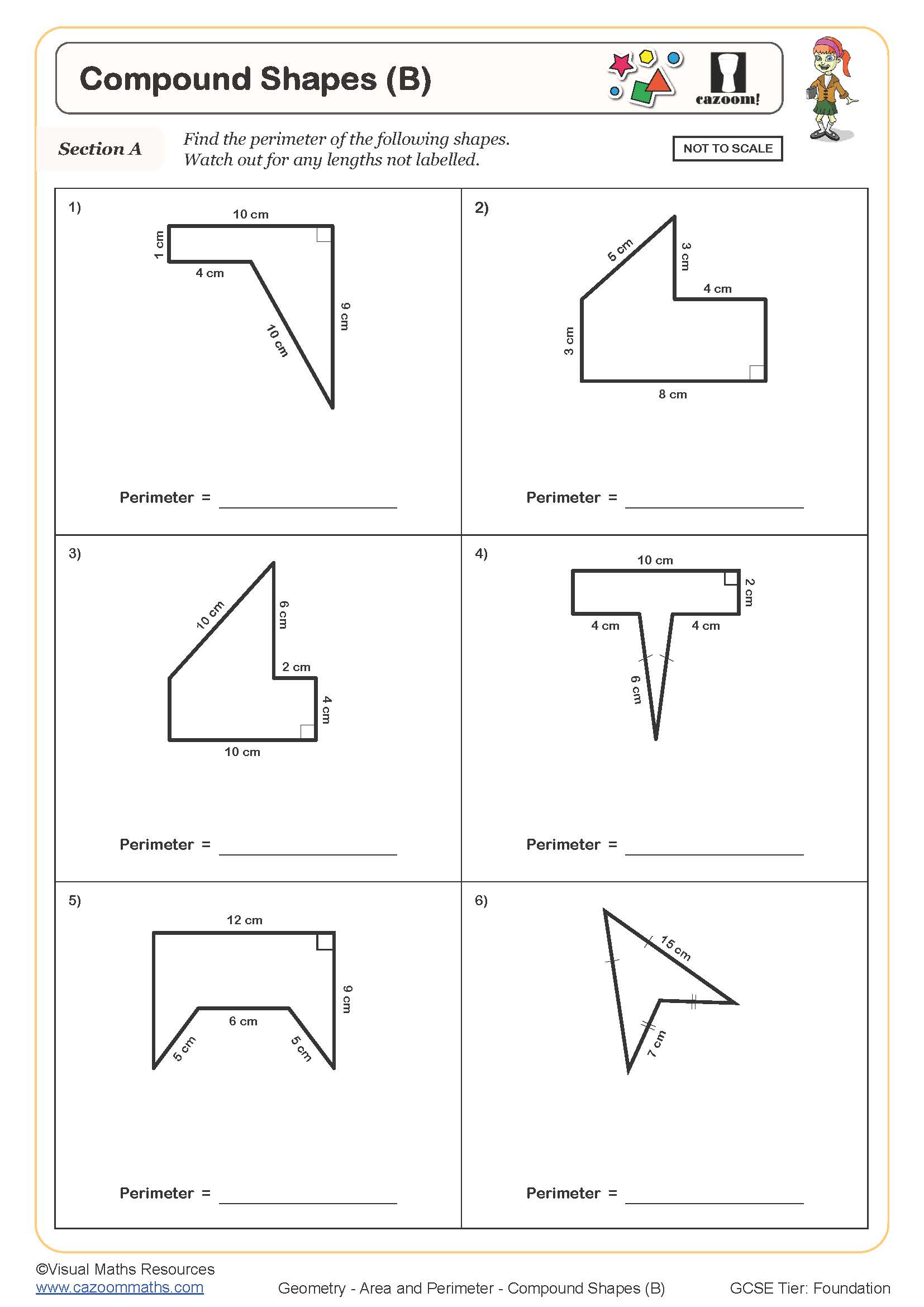
Finding the Radius or Diameter from the Circumference and Area
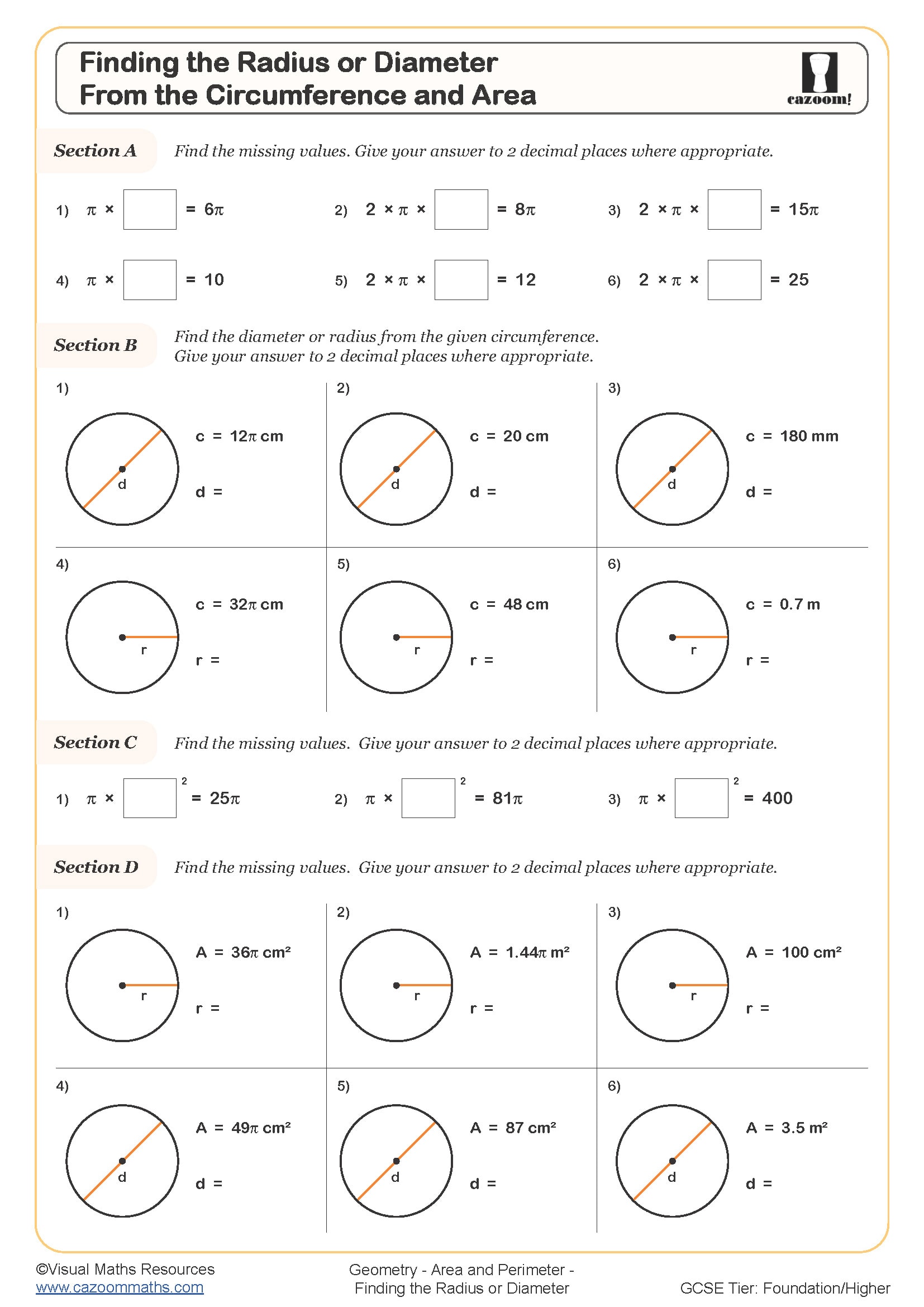
Problem Solving with Circumference and Area of Circle
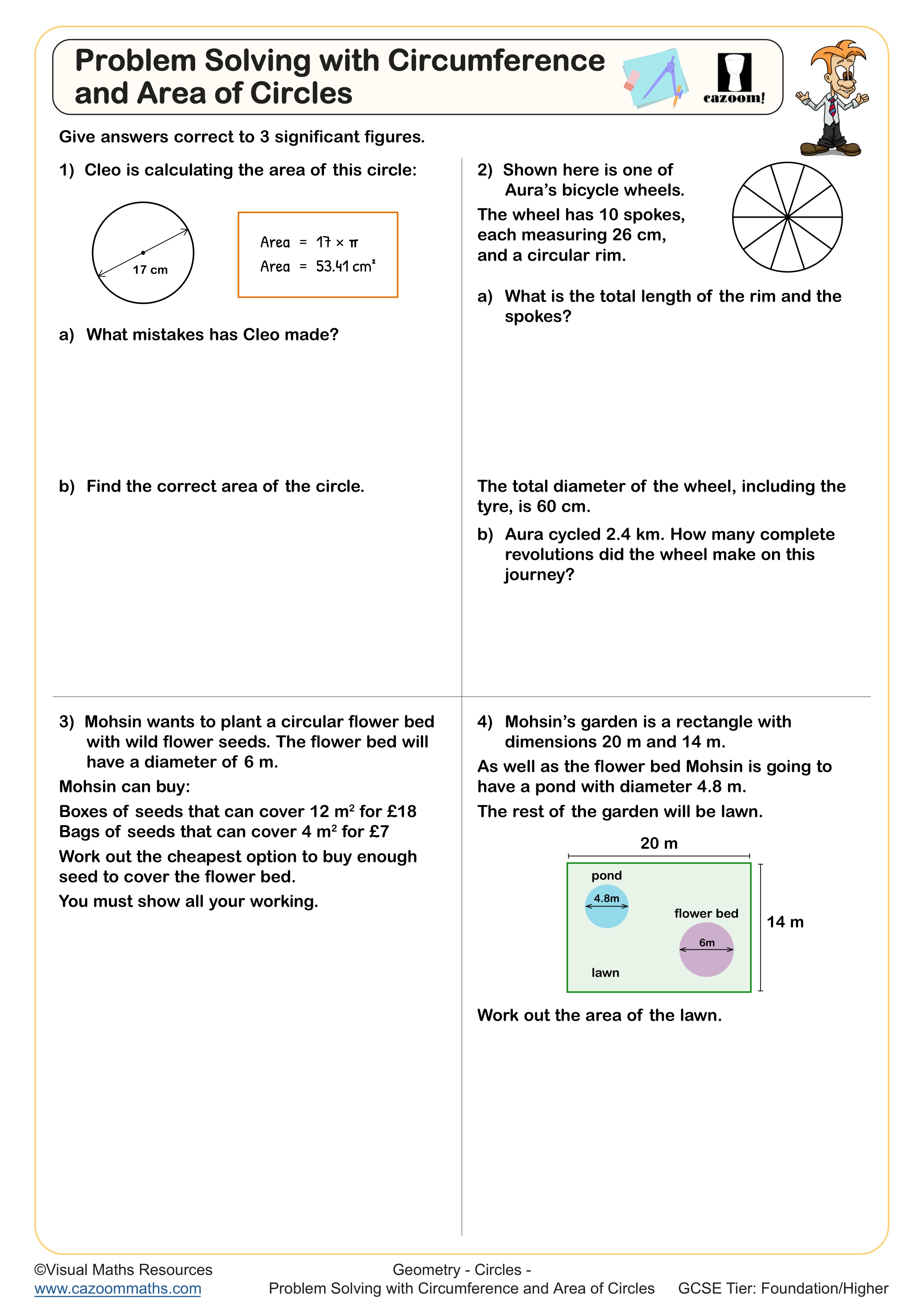
Properties of Trapezia
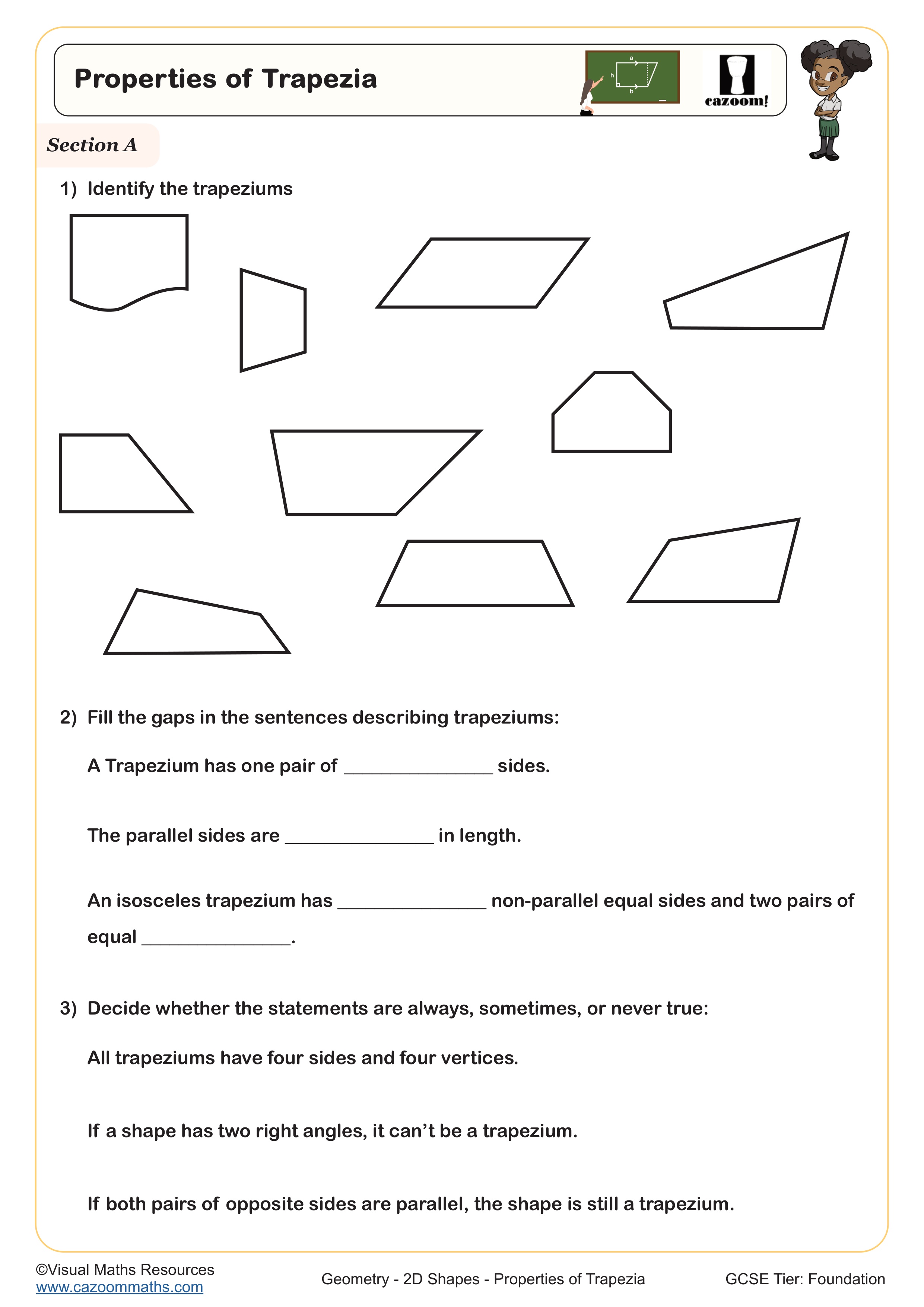
Solving Equations Involving Area of Rectangles
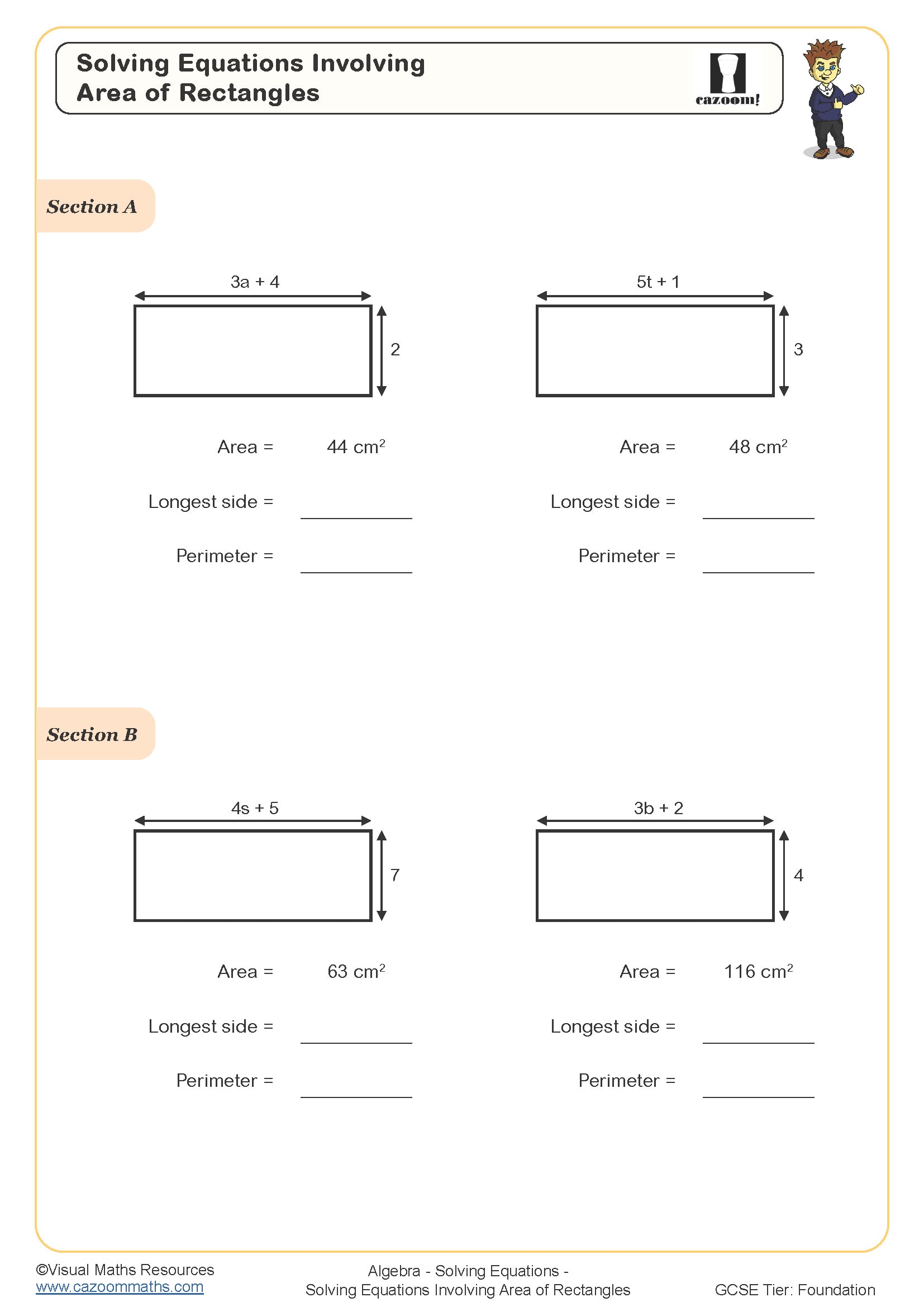
All worksheets are created by the team of experienced teachers at Cazoom Maths.
The Hidden Benefits of Our Printable Year 9 Area and Perimeter Worksheets
Moving from Year 8 to Year 9 marks a crucial shift towards sophisticated geometric reasoning, where students begin applying area and perimeter concepts to compound shapes, sectors, and algebraic problems. These worksheets bridge the gap between basic shape calculations and higher-level geometry, helping students recognise patterns across different mathematical topics. Regular practice with these structured resources ensures students develop the algebraic manipulation skills needed when working with formulae containing variables and unknowns. The progression through increasingly complex problems builds resilience and analytical thinking that extends into trigonometry and coordinate geometry. A consistent approach prevents knowledge gaps that could hinder future mathematical development.
Specific learning benefits include:
• Master compound shape decomposition strategies
• Strengthens algebraic formula manipulation
• Develops spatial visualisation abilities
• Connects geometry to other maths topics
• Improves accuracy with decimal calculations
• Reinforces precise mathematical communication
• Enhances systematic working methods
Classroom-Ready Geometry Worksheet Topics for Lessons, Homework, and Revision
The progression from concrete measurements through pictorial representations to abstract formula work ensures deep conceptual understanding rather than rote memorisation. Each worksheet includes fully worked solutions that demonstrate the mathematical reasoning behind every step, allowing students to learn from the problem-solving process itself. Cazoom Maths worksheets scaffold learning carefully, introducing complexity gradually whilst maintaining accessibility for all learners.
The worksheets in this collection include:
• Area of Rectangles and Squares — reinforces foundational calculation methods using standard units
• Perimeter of Complex Shapes — develops systematic approaches to finding boundaries
• Area of Triangles — applies formulae with various given measurements
• Area of Parallelograms and Trapeziums — extends understanding to slanted quadrilaterals
• Compound Shapes with Rectangles — practices decomposition and addition strategies
• Area and Perimeter of Circles — introduces π calculations and decimal accuracy
• Sectors and Segments — tackles partial circle measurements using angles
• Mixed Practice Problems — combines multiple concepts in challenging scenarios
• Word Problems — translates real situations into geometric calculations
Traditional Lessons or Worksheets? Why KS3 Area and Perimeter Worksheets Work Best
The careful differentiation within each worksheet enables teachers to address the full spectrum of abilities within a single class, from students who need consolidation to those ready for extension challenges. The combination of visual aids with mathematical calculations helps students who learn better through visual methods, while the increasing level of difficulty provides suitable challenges for all students to avoid feeling overwhelmed. Teachers can use answer sheets with detailed working to identify student difficulties, which helps them deliver specific help during classroom instruction. The uniform structure of worksheets helps students become familiar with the format, which reduces mental effort, allowing them to concentrate on mathematical problems instead of reading instructions. The existence of multiple solution pathways in geometric problems shows that different valid methods can solve these problems, which helps students develop flexible thinking and creative problem-solving abilities.
Practical Applications of Area and Perimeter in Everyday Life
Understanding area and perimeter calculations equips students with essential skills for navigating situations throughout their personal and professional lives. These geometric concepts appear constantly in fields ranging from design to agriculture.
• Planning room layouts and calculating carpet or flooring requirements
• Determining fencing needed for gardens or sports fields
• Calculating paint coverage for decorating projects
• Understanding land measurements in property transactions
• Designing packaging to minimise material waste
• Creating scaled drawings for technology projects
• Estimating costs for construction and landscaping
• Solving efficiency problems in manufacturing processes